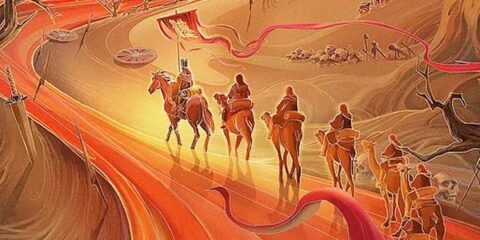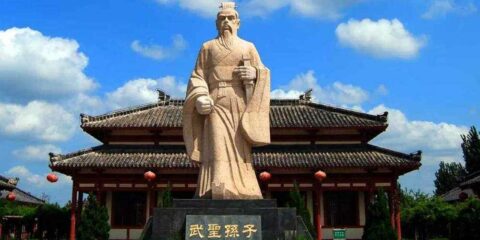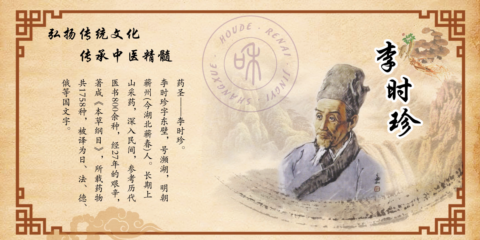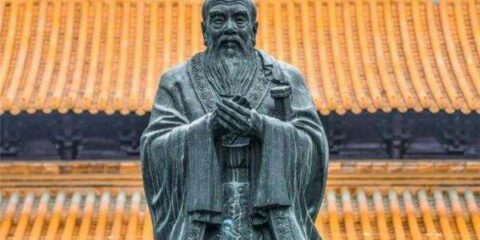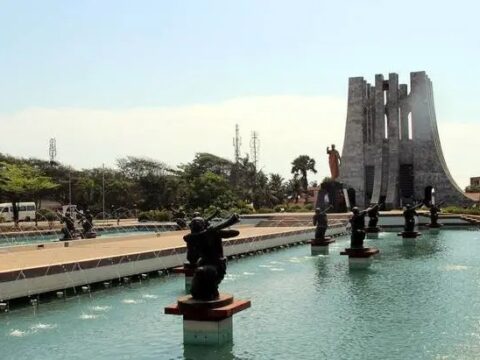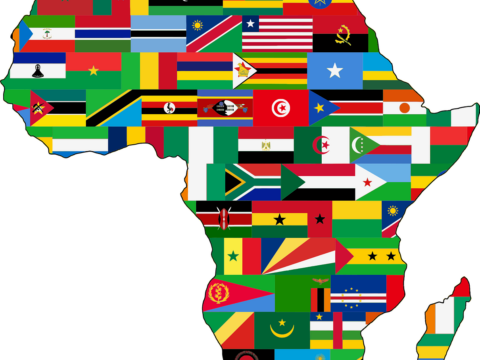| order | name | Historical time | status | consequence |
| 61 | Li Hongzhang | 1823-1901 | He was the most controversial historical figure in modern Chinese history and an important military and political official of the late Qing Dynasty who had influenced modern China for nearly half a century | He was the only one in the Qing Empire who could stand to compete with the world powers. In his life, he signed more than 30 treaties, including the Treaty of Shimonoseki, which cut Taiwan. He had outstanding diplomatic talent, which made the US President grant call him the first of the four great men in the world. |
| 62 | Wei Qing | ? -106 BC | Military strategist of the Western Han Dynasty | He made a great contribution to the opening up of the territory of the Han Dynasty. He is a famous and victorious general in Chinese history. He and his nephew Huo Qubing are called the “imperial double”. The decisive battle between Han and Hungary determines the trend of Asian and even world history, while Wei Qing almost holds up half of the sky of the Han Dynasty against the Huns, and the battle of Mobei to annihilate the Huns can be regarded as a war to change human history. However, the occurrence of these events is more from Emperor Wu of the Han Dynasty. |
| 63 | Zhu Rongji | 1928- | The fifth premier of the new China | In the 1990s, China entered the largest and most unprecedented period of economic reform in human history. As a leader focusing on the economy, Zhu Rongji brought modern management methods and even western civilization. He was one of the decision-makers or executors of the market, capital, finance, stock market, insurance, independent job selection, reform of state-owned enterprises, and accession to the WTO at that time, which deeply affected China’s future development. |
| 64 | Xu Guangqi | 1562-1633 | Chinese scientists, agronomists, and politicians in the late Ming Dynasty were one of the pioneers of cultural exchanges between China and the West | His compilation of “complete agricultural administration” and “original geometry” has a great influence. Xu Guangqi contacted Matteo Ricci, the Jesuit leader who came to China to preach at that time and became the most powerful cadre in the church, known as the first of the “three pillars” of Chinese Catholicism, which made a great contribution to the introduction of western religion. |
| 65 | Ge Hong | 284-364or343 | He was a famous Taoist scholar in the Eastern Jin Dynasty | Ge Hong inherited and reformed the immortal theory of early Taoism, including keeping one, exercising Qi, practicing Dan, guiding, and room art, which made great contributions to the development of Taoism. Ge Hong’s Alchemy and thought had a great influence on the development of alchemy in the Sui and Tang Dynasties. Neidan’s thoughts had a great influence on the later people and emperors. Ge Hong also made great contributions to traditional Chinese medicine. |
| 66 | Sima Guang | 1019-1086 | author of the history Zizhi Tongjian | He mainly did these two things in his life, compiling Zizhi Tongjian and opposing Wang Anshi’s new law. Zizhi Tongjian is a famous historical work in ancient China. It is the largest chronicle in China. It has always been valued and read by people. It plays a very important role in Chinese history books. In history, Sima Guang was regarded as one of the three saints of Confucianism (the other two were Confucius and Mencius) |
| 67 | Zhuge Liang | 181-234 | Prime Minister and outstanding statesman of Shu Han during the Three Kingdoms period | In addition to the influence of the romance of the Three Kingdoms, we can know from Du Fu’s Shu Xiang and Lu You’s book anger that Zhuge Liang, as a famous Minister of the wise, as the author of the teacher’s example, as a model of the honest and upright performance of official duties, has always been respected by the ruling classes, scholars and officials of all dynasties and loved by the people. Zhuge Liang also contributed to the development of Sichuan and southwest China. |
| 68 | Kang Youwei | 1858-1927 | Famous politicians, thinkers, and social reformers in modern times | Kang Youwei was the most influential thinker in the late Qing Dynasty and the early Republic of China. At that time, he led the Enlightenment of Chinese intellectual circles. Kang Youwei was one of the first people to explore constitutionalism in China, and he advocated the integration of China and the West into the political system for the first time. |
| 69 | Sui Yangdi | 569-618 | One of China’s most famous tyrants? | Emperor Yang of the Sui Dynasty ordered the excavation and construction of the “Grand Canal”, but it inadvertently became the main artery of China’s economy. It was an epoch-making event in China’s history to improve the imperial examination system and set up the Jinshi Section. The expansion of territory shocked all around. From then on, the system of the Chinese dynasty, which had influenced the Central Plains Dynasty for more than 1500 years, began. |
| 70 | Yuan Longping | 1930-2021 | The pioneer of China’s hybrid rice industry is contemporary Shennong, known as the “father of hybrid rice”. | It has made great contributions to solving the problem of eating for the Chinese people. The hybrid rice technology invented by Yuan Longping has solved the problem of feeding 35 million people in the world. The newspaper once quoted farmers as saying: “we have enough to eat and rely on two ‘evenings’, Deng Xiaoping and Yuan Longping. “Yuan Longping saved far more people than Bai Qi killed. |
| 71 | Bai Qi | ? -257 BC | Known as the “God of war”, he is the most brilliant general in Chinese history | Bai Qi led the army to win every battle in his life and wiped out more than 1 million troops from the six countries. As long as the six countries’ troops heard that he led the troops to fight, they trembled. The battle of Changping killed more than 400000 Zhao troops, which can be said to be the cruelest battle in the world’s military history. The battle of Changping has a far-reaching impact on the trend of Chinese history. Baiqi is the hero. |
| 72 | Wu Daozi | About 680-759 | Wu Daozi is a versatile painter, known as the “saint of painting” | At the same time, Wu Daozi is the founder of Chinese landscape painting. He created the “sparse style” of mountains and rivers with far meanings between brushes, which made mountains and rivers become an independent kind of painting, thus ending the vassal status of mountains and rivers only as the background of figure painting. The emergence of Wu Daozi is a glorious page in the history of Chinese figure painting. |
| 73 | Wang Anshi | 1021-1086 | Outstanding statesmen, thinkers, writers, and reformers in the Northern Song Dynasty | He was one of the eight great poets in the Tang and Song Dynasties and an outstanding poet. He had a great influence on the development of later Song poetry. Wang Anshi was praised by Lenin as “the great reformer of China in the 11th century”. Wang Anshi’s reform and the new deal of the United States in the 1930s are both events with great influence in the history of the world economy, but their significance is greater than the actual impact! |
| 74 | Qian Xuesen | 1911-2009 | China’s outstanding scientists in modern times, the founders of China’s aerospace industry, and one of the important founders and main founders of human aerospace science and technology | Qian Xuesen has made immeasurable contributions to new China’s high technology and is known as “the father of China’s aerospace”, “the father of China’s missiles”, “the king of Rockets” and “the father of China’s automatic control”. The influence of China’s aerospace is Qian Xuesen’s influence. |
| 75 | Wang Fuzhi | 1619-1692 | He was an outstanding thinker and philosopher in the late Ming and early Qing Dynasties and the terminator of Chinese classical philosophy | Wang Fuzhi’s thoughts had a great influence on later generations. It was once praised by foreigners as the highest stage of the development of medieval philosophy. Wang Fuzhi’s philosophy is the essence of the spirit of the times under the special historical conditions of China in the 17th century and occupies a high position in the history of Chinese philosophy. |
| 76 | Wang Shouren | 1472-1529 | Also known as Wang Yangming. Wang Shouren is a master of subjective idealism in the song and Ming Dynasties. He is the most famous thinker and philosopher in the Ming Dynasty | Wang Shouren is a master of subjective idealism in the song and Ming Dynasties. He is the most famous thinker and philosopher in the Ming Dynasty. He developed Lu Jiuyuan’s theory which became “Lu Wang’s mind theory” to resist the Cheng Zhu school. Wang Shouren is a rare omnipotent Confucian in Chinese history. His academic thought has had important and far-reaching influence in China, Japan, the Korean Peninsula, Southeast Asian countries, and even the world. It is difficult to distinguish the influence of the two kings! |
| 77 | Deng Jiaxian | 1924-1986 | Outstanding scientists in modern China | Deng Jiaxian is one of the founders of China’s theoretical research on nuclear weapons. |
| 78 | Li Qingzhao | 1084-1155 | The poetess of the Song Dynasty, the first representative of the graceful school, had a great influence on later generations | The bold and unrestrained style in her Ci works made her unique in the Song Dynasty, which had a great influence on later poets such as Xin Qiji and Lu you. Li Qingzhao is one of the most outstanding female talents in the history of Chinese literature, which has had a great influence on Chinese women. |
| 79 | Yuan shi kai | 1859-1916 | The meritorious people who promoted China’s modernization actively developed industry, abolished the imperial examination, established schools, established China’s first new army, and so on | Yuan Shikai did three things that influenced the trend of history. First, he did not stand on the side of Emperor Guangxu, which led to the failure of the reform movement of 1898; second, he did not stand on the side of the Qing Dynasty, which led to the demise of the Qing Dynasty; third, he did not stand on the side of the Republic, which led to the scuffle of warlords. |
| 80 | Yan Zhenqing | 709-784? | Outstanding calligrapher in the Mid-Tang Dynasty | The “Yan ti” regular script he founded is one of the “four masters of regular script”. His calligraphy is called “Yan ti” and “Yan Liu” together with Liu Gongquan, which is known as “Yan Jin Liu Gu” “Yan ti” has a majestic and supernatural style. It is known as the first in cursive writing. It stands tall in the calligraphy world and is loved and imitated by people from generation to generation. |
Chinese historical figures are analyzed and listed in no chronological order as the top 100 most influential historical celebrities. Influence does not take into account who is famous, significant, outstanding, widely circulated or influential for a while, but rather which person in history has changed the course of Chinese history, the direction of development, people’s livelihood and economy, and way of life, and whether it has changed the outlook on life, values, the ideology of most people in history The history of China’s history is not just about the people, but about which person changed the course of history, the direction of development, the livelihoods, the economy and the way of life. For reference and study only!



